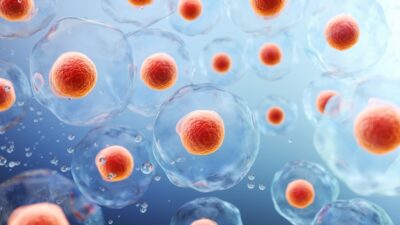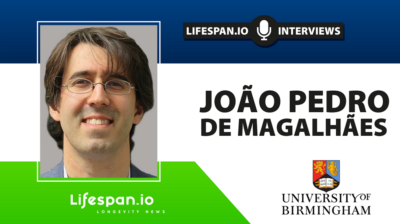Twin Study: Healthy Vegan Diet Beats Healthy Omnivorous Diet
- The vegans had better cholesterol levels.

In a randomized controlled trial, eight weeks of healthy vegan eating, but not of healthy omnivorous eating, led to weight loss and significant improvements in LDL cholesterol and insulin levels in a middle-aged twin study [1].
A tale of two diets
Most of our knowledge about the health effects of various diets comes from epidemiological studies. Notoriously noisy and hard to interpret, they still are the best tool we have for measuring long-term impacts. However, randomized controlled trials, limited in their duration but much more rigorous, can also provide valuable insights.
There has been considerable debate about the pros and cons of plant-based diets [2], especially compared to well-balanced and wholesome omnivorous diets. This new study tested 22 pairs of identical twins to investigate the effects of a healthy omnivorous diet versus a healthy vegan diet on several metabolic markers. Using identical twins is beneficial since it allows scientists to control for genetic differences and for many environmental factors, such as upbringing.
For each pair, one twin ate the vegan diet and the other ate the omnivorous diet for eight weeks. For the first four weeks, the meals were provided via a meal delivery service. For the second half of the experiment, after dietary coaching, the participants prepared their own diet-appropriate meals and snacks.
Better metabolic outcomes
The primary outcome was the change in low-density lipoprotein (LDL) cholesterol levels from the baseline. LDL is known as the “bad” cholesterol due to its association with cardiovascular disease [3]. Secondary outcomes included changes in cardiometabolic factors, such as plasma lipids, glucose, and insulin levels, as well as body weight.
The cohort was generally healthy, middle-aged, predominantly white and female, with a borderline normal average body mass index (BMI) of 25.9. The mean LDL level at baseline was in the “nearly optimal” range in both groups, which, according to the researchers, “left minimal room for participants to improve through diet alone.”
Yet, the plant-eaters, but not the omnivores, significantly improved their LDL levels by the end of the study period, with a mean decrease of 15.2 mg/dL (13.9 mg/dL more than the omnivores). The first group also lost about 2 kilograms of weight on average, beating the second group by a lot.
The plant-eating group also experienced a significant decrease in fasting insulin levels, along with larger but non-significant decreases in fasting high-density lipoprotein (HDL) cholesterol, vitamin B12, triglycerides, and glucose levels. HDL is considered the “good” cholesterol, but it is less strongly associated with health outcomes than LDL is. B12 is an essential vitamin that can be obtained almost solely from animal food sources. Many vegans supplement B12.
The possible causes
Digging deeper into the dietary data reveals that the vegan group consumed, on average, about 200 fewer calories a day than the omnivores, which might explain their weight loss. The vegans got a smaller percentage of their calories from protein and fat and a higher percentage from carbohydrates.
The two diets also had different lipid profiles: the vegans consumed much less saturated fats (generally considered unhealthy) and more mono- and polyunsaturated fats. This is what might have led to the significant decrease in LDL cholesterol among the vegans. The vegans also consumed much more fiber, a healthy dietary ingredient that promotes satiation.
Many dietary randomized controlled trials are conducted in metabolically unhealthy populations. This one suggests that healthy people can expect to glean quick metabolic benefits from a vegan diet, even compared to a balanced omnivorous one. If there was one downside to the vegan diet in this study, it’s that the vegan group reported lower food satisfaction. However, for most vegans, this gets better with time.
In this randomized clinical trial of healthy, adult identical twins, the 8-week change in LDL-C level—the primary outcome—was significantly lower for twins receiving the vegan diet compared with twins receiving the omnivorous diet. Insulin levels and weight were also significantly lower among the twins on the vegan diet from baseline to 8 weeks. Vegan-diet participants had total lower protein intake as a percentage of calories, lower dietary satisfaction, lower intake of dietary cholesterol, but higher intake of vegetable servings and intake of dietary iron. Vegans had lower intake of vitamin B12, yet serum vitamin B12 levels were not statistically different than omnivores at 8 weeks, likely because of preserved stores. Long-term vegans are typically encouraged to take a cyanocobalamin (vitamin B12) supplement.
Literature
[1] Landry, M. J., Ward, C. P., Cunanan, K. M., Durand, L. R., Perelman, D., Robinson, J. L., … & Gardner, C. D. (2023). Cardiometabolic Effects of Omnivorous vs Vegan Diets in Identical Twins: A Randomized Clinical Trial. JAMA Network Open, 6(11), e2344457-e2344457.
[2] Fehér, A., Gazdecki, M., Véha, M., Szakály, M., & Szakály, Z. (2020). A Comprehensive Review of the Benefits of and the Barriers to the Switch to a Plant-Based Diet. Sustainability, 12(10).
[3] Abdullah, S. M., Defina, L. F., Leonard, D., Barlow, C. E., Radford, N. B., Willis, B. L., … & Khera, A. (2018). Long-term association of low-density lipoprotein cholesterol with cardiovascular mortality in individuals at low 10-year risk of atherosclerotic cardiovascular disease: results from the Cooper Center Longitudinal Study. Circulation, 138(21), 2315-2325.







